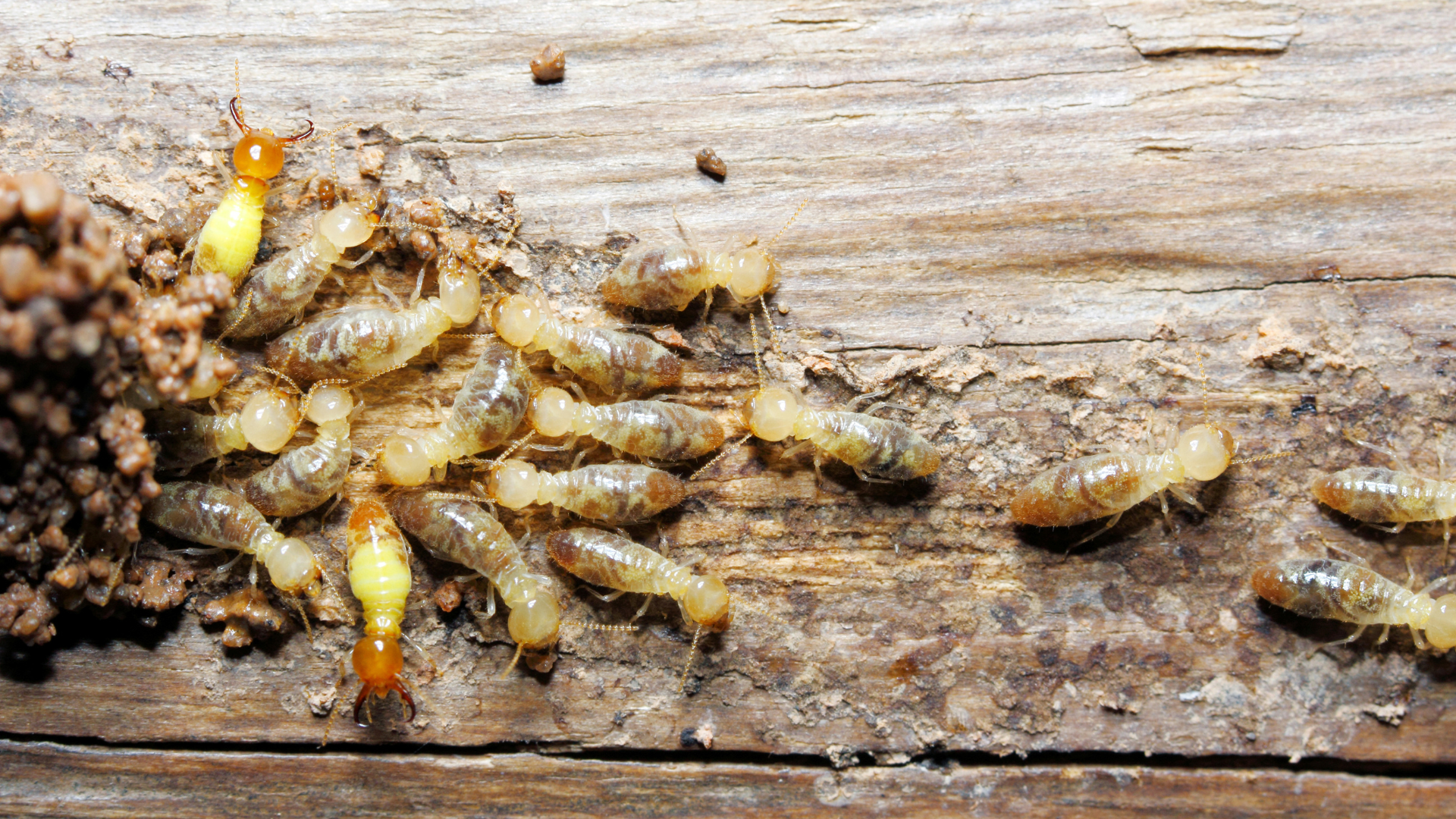With billions of dollars in damage caused each year, termites are some of the nastiest pests around.
What’s more, termites can cause significant damage to your home for years, largely undetected.
One question we get asked a lot is whether termites harm humans. But, since they tend to reside in your home for years and often come in contact with homeowners, what should you do to protect your health?
Let’s explore the dangers of termites, how to protect yourself when dealing with or preventing an infestation, and how to get rid of termites once and for all.
 Ways Termites Can Harm Your Health
Ways Termites Can Harm Your Health
Unlike cockroaches, termites do not carry diseases. And, while termites may bite or sting, their bites are not toxic and do not harm humans directly.
Rather, termites can cause respiratory problems through dust buildup as they burrow their way through your home. This can lead to issues like asthma.
Does this mean it’s safe to have a termite infestation? Unfortunately, no. On the contrary, termites may be some of the most dangerous pests because of the damage they can do to your home.
The Real Danger of Termites
Termites may not harm human health, but they can risk you and your home. Based on their feeding habits, termites can cause severe structural issues to a house in as little as 3-8 years.
In some cases, this can lead to foreclosure or even collapse.
As a result, a termite infestation should be dealt with as soon as you spot the signs of termites in your home and by a professional.
How Safe Are Termiticides?
Many homeowners may be tempted to deal with a termite infestation DIY, but this could cause more harm than good. First, mishandling insecticides can leave your family and any pets in the house at risk for respiratory illness or worse.
This comes about from mishandling sprays by using them too liberally or not allowing enough time to dissipate before returning home.
For this reason, it’s always suggested that you trust a termite control expert before dealing with an infestation on your own.
Why Termites Invade Homes
Termites rely on cellulose to survive–an organic component found in wood and trees. So even if you treat your home with an insecticide, any untreated wood exposed to the outside can create an entryway for termites to burrow into your home.
Generally, termites need three things to survive:
- Moisture
- Cellulose
- A good place to hide
For this reason, basements serve as the perfect entryway for termites. However, termites can end up in any part of your home with exposed wood or cardboard.
Deadwood outside of your home and broken tree limbs can also be a magnet for termites, so be sure to eliminate any clutter in your yard.
The most common types of termites in Maryland are subterranean termites and are notoriously tricky to deal with.
Essential Termite Prevention Tips
Although you can’t see termites, you can fight back against these pests. Try these helpful prevention tips to keep your home safe from these wood-destroying insects.
- Eliminate sources of water build-up in and around your home.
- Address issues with your home’s gutter system and downspouts.
- Fix leaky piping and fixtures around your home.
- Use a dehumidifier around humid areas such as basements and crawl spaces.
- Repair or replace structural wood around your home’s exterior that is water damaged.
- Make sure there is a non-wood barrier between your home’s exterior foundation and its structural wood.
- Avoid using wood-based mulch around your home’s exterior.
- Remove wood-based clutter such as cardboard, fallen trees, newspaper, sticks, and leaf piles from your yard.
How Professionals Handle Termite Problems
Because termites are so difficult to identify, there is no way to know if the prevention tips you use effectively control these pests. The only way to ensure termites stay off your property and away from your home’s wood is to invest in quality termite control courtesy of Pest Czar.
While the price of pest control may seem too expensive, the longer you wait, the more you will lose in damage to these pests.
Call our team today to schedule your home for a detailed pest inspection and learn how our year-round pest protection plans can help protect your property from destructive and harmful termites.

